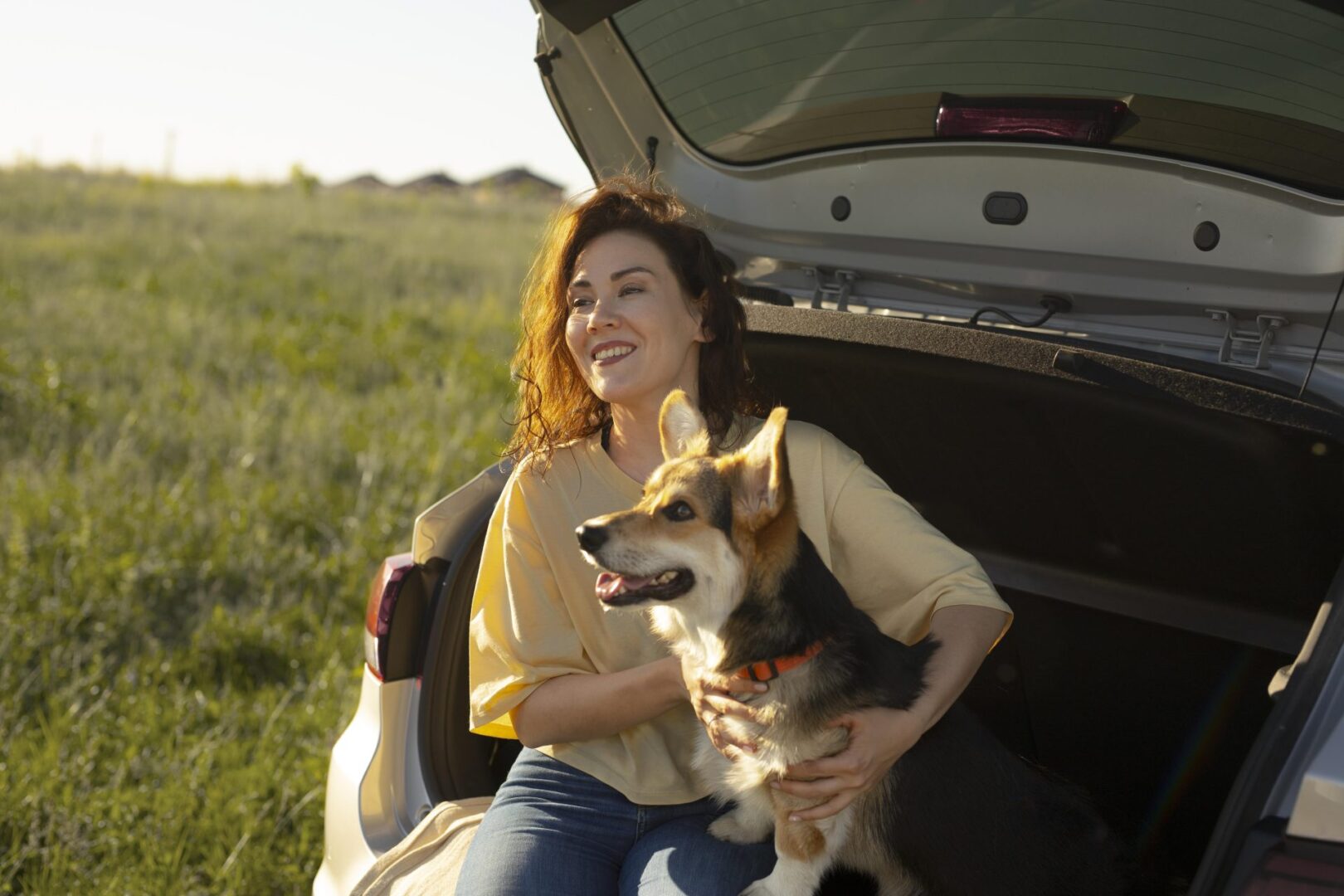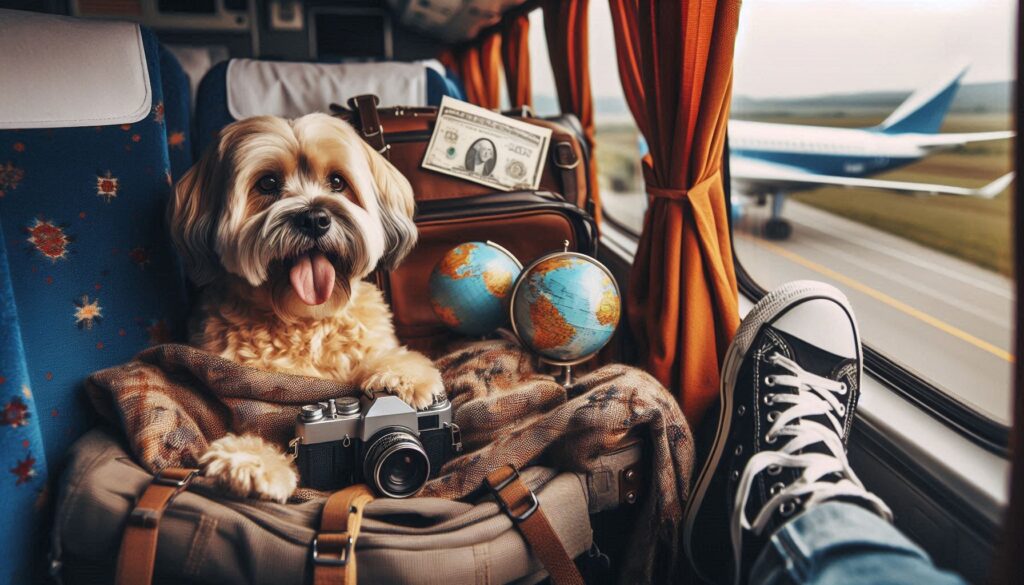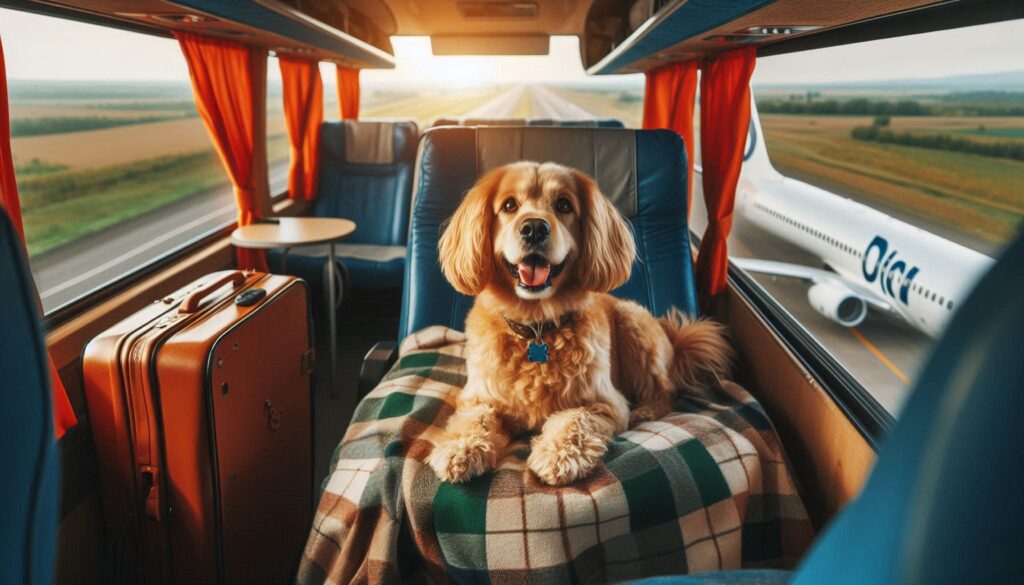
Training Your Dog for Traveling: A Complete Guide to Stress-Free Trips
Bringing your four-legged best friend on a trip can make your journey more enjoyable, but only if you properly train your dog for traveling. Without adequate preparation, traveling with a pet can become stressful and even unsafe.
Whether you’re taking a weekend getaway or planning a long-distance adventure, training your dog for traveling ensures that both of you have a smooth and enjoyable experience.
Dan Gentile, a dog training expert in New Jersey with over 40 years of experience, offers valuable insights into dog travel training. With the right approach, you can make traveling safe, fun, and stress-free for both you and your pet.
Why it is Important to Train Your Dog for Traveling
Even if your dog is well-behaved at home, traveling introduces new environments, stimuli, and challenges that can affect their behavior. Unfamiliar places, disruptions in routine, and long travel times can make even the calmest dogs anxious or misbehave. Investing time in training your dog for traveling ensures:
- Your dog remains calm and well-behaved in different environments.
- Reduced stress and anxiety for both you and your pet.
- Safer travel experiences, whether by car, plane, or train.
- Better interactions with strangers, hotel staff, and other animals.

Essential Travel Skills for Your Dog
When training your dog for traveling, focus on these key areas to ensure a well-rounded travel companion.
1. Crate Training: Providing a Safe Space
A crate is one of the best tools for keeping your dog secure while traveling. It provides a familiar, comfortable space where they can relax and feel safe.
- Introduce the crate early: Make the crate a positive space by placing treats, toys, and a cozy blanket inside.
- Practice short stays: Start with short periods in the crate at home before increasing the duration.
- Use the crate in the car: Secure the crate in your vehicle so your dog gets used to being inside while traveling.
If you’re flying, check airline regulations regarding pet crates and ensure yours is airline-approved.
2. Teaching Good Car Behavior
Dogs that are calm in the car make for a smoother journey. Start car training early so your dog is comfortable with longer rides.
- Use a dog seatbelt or crate: This prevents excessive movement and keeps your pet safe.
- Condition your dog to car rides: Start with short trips and gradually extend them.
- Practice calm entry and exit: Your dog should only enter and exit the car when given permission.
- Prevent motion sickness: Avoid feeding your dog right before travel, and take breaks for fresh air if needed.
3. Potty Training for Travel
A dog that can relieve itself on command will make traveling much easier, especially on long trips or when access to outdoor areas is limited.
- Use a consistent command: Train your dog to go potty on cue using phrases like “Go now.”
- Stick to a schedule: Try to maintain your dog’s usual bathroom routine, even when traveling.
- Use puppy pads when needed: These can be useful for emergencies in hotel rooms or airports.
4. Managing Barking in Public Places
Excessive barking can be disruptive in hotels, campgrounds, or public transport. To keep your dog quiet and relaxed:
- Train the “quiet” command: Reward your dog for stopping barking on command.
- Identify triggers: If your dog barks at strangers or noises, desensitize them by exposing them to similar situations at home.
- Use positive reinforcement: Praise and treat your dog when they remain quiet in new environments.
5. Socialization: Preparing for New Environments
Your dog will encounter new people, animals, and surroundings while traveling. Early socialization helps them adapt more easily.
- Expose your dog to new experiences: Take them to parks, busy streets, and pet-friendly stores.
- Encourage calm interactions: Reward your dog for remaining calm around new people and animals.
- Simulate travel scenarios: If staying in a hotel, practice sleeping in a crate overnight at home.
6. Teaching Basic Commands for Travel
Strong obedience skills make travel much easier. Ensure your dog understands:
- Sit: Helps keep your dog calm in waiting areas.
- Stay: Prevents them from running off in unfamiliar locations.
- Come: Essential for recall in case they get loose.
- Leave it: Stops them from picking up unsafe objects.
Preparing Your Dog for Different Types of Travel

Car Travel
- Feed your dog at least 2 hours before departure to avoid motion sickness.
- Stop every 2-3 hours for bathroom and exercise breaks.
- Never leave your dog in a parked car, especially in warm weather.
Air Travel
- Check airline pet policies before booking.
- Use an airline-approved travel crate.
- Avoid layovers if possible to minimize stress.
Train and Bus Travel
- Some public transport options allow dogs, but check rules in advance.
- Keep your dog leashed and well-behaved in crowded areas.
- Bring a travel water bowl and snacks to keep them comfortable.
Packing Essentials for Dog Travel
Bringing the right supplies ensures your dog stays comfortable on the road.
✔ Food and Water: Pack enough for the entire trip, plus collapsible bowls.
✔ Leash and Harness: A sturdy leash and a no-pull harness.
✔ Crate or Carrier: A safe place for your dog to rest.
✔ First Aid Kit: Bandages, tweezers, and any prescribed medications.
✔ Toys and Comfort Items: Familiar objects to reduce stress.
✔ Waste Bags: Always clean up after your dog.
✔ Identification Tags: Ensure your dog has an updated ID and a microchip.
✔ Copies of Vaccination Records: Some destinations require proof of vaccination.

Keeping Your Dog Healthy While Traveling
Before embarking on a trip, schedule a vet check-up to ensure your dog is in good health. Discuss:
- Preventative medications: Protect against fleas, ticks, and heartworms.
- Vaccinations: Ensure all shots are up-to-date, especially if traveling abroad.
- Microchipping: In case your dog gets lost, a microchip can help reunite you.
What to Do if Your Dog Gets Lost While Traveling
Even with careful planning, accidents happen. If your dog gets lost:
- Stay calm and search nearby areas.
- Contact local animal shelters and veterinarians.
- Use social media and local pet recovery groups.
- Make sure your dog’s microchip details are up to date.
- Carry recent photos of your dog to share if needed.
Make Travel Fun and Safe
Training your dog for traveling takes time and patience, but the effort is worth it. A well-trained dog makes for a stress-free trip, allowing you to create lasting memories together. Start training early, pack wisely, and always prioritize your dog’s safety and comfort.
For professional training tailored to your pet’s needs, contact the Dan Gentile Dog Training Center at 732-938-5040 or visit NJDog.com for expert advice on preparing your dog for a smooth and enjoyable travel experience.
Enjoy This Article? You May Also Like:
- How To Keep Your Dog Busy When You’re Busy
- How Long Does It Take To Train a Service Dog?
- Dog Scent Training: What Does It Involve?
- Dan Gentile: A Lifetime of Expert Dog Training in Howell, NJ